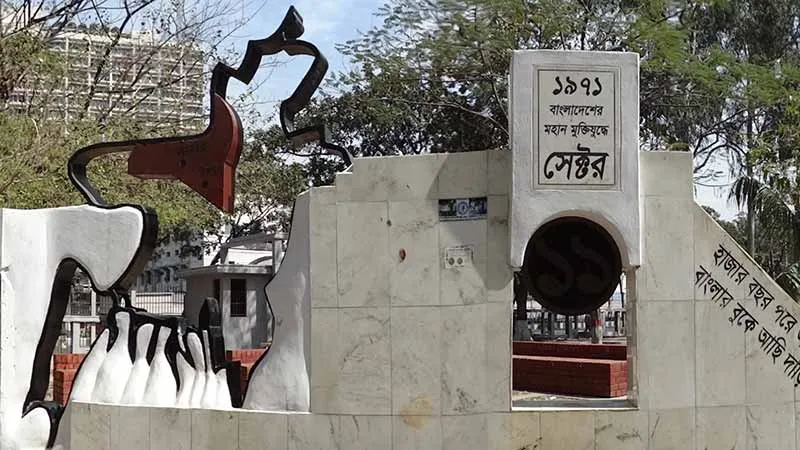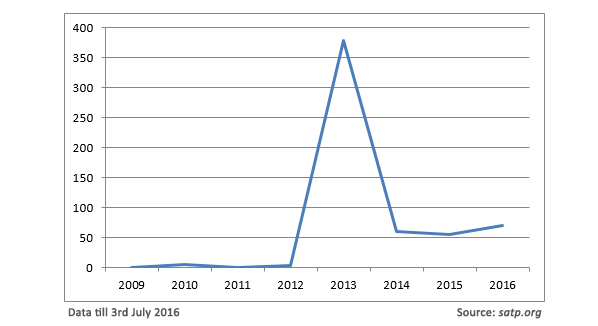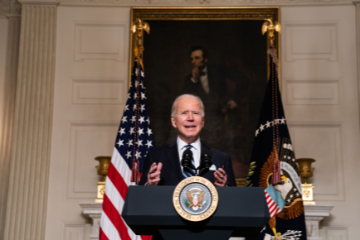
Bangladesh has been on the world terror radar for quite a long time now. But the recent militant attack in Dhaka at an upscale café on July 1, which killed 22 people, including 20 foreigners and security personnel, has focused global attention on the rising militancy in the country. And it has also raised doubts about the country’s counter terrorism strategy.
In January 2009, after forming the government, the ruling Awami League had declared a policy of zero tolerance for terror and had acted on militant groups. Following these actions, Bangladesh was considered as a success model for counter terrorism. However, the July 1 incident signals the growing influence of militant organisations in the country. Now, there is an urgent need for a fresh understanding of the problem to effectively tackle the rising militancy.
The Dhaka attack, executed by a group of educated and armed militants, was the bloodiest act of terror in the history of Bangladesh. The militants seized the the Holey Artisan restaurant in the posh Gulshan area in capital Dhaka, for around 11 hours. The government had to deploy armed military commandos to end the hostage drama which saw the killing of 18 foreigners and four Bangladeshis, including two members of the law enforcement agency. It is worth noting that the militants were able to hold back the security forces for 11 long hours, pointing out that superior training. Another important point was that while earlier the militants used to be from madrasa-educated lot, this attack was done by young boys from affluent families, with liberal education. This proved wrong the popular belief that poverty and employment are the motivations to join jihad.
Also read: Bigger catastrophe for Bangladesh
International terror organisation Islamic State (IS) has claimed responsibility for the attack. However, the government has expressed reservations on the IS claim and said it was organised by a native group. Initial investigation suggests that local group Jamaatul Mujahedeen Bangladesh (JMB) is behind the incident.
< style="color: #163449;">Increasing militancy?
Since 2013, Bangladesh has been witnessing escalation in the activities of the militant groups. The killing of blogger Rajib Haider, an activist of the Shahbag movement which supported criminals of the liberation war of 1971, had attracted attention to the new tide of militancy. The militants have targeted bloggers, writers and publishers who are critical of their ideology. Also, the militant groups are targeting religious minorities, international aid workers, sects of Islam, including Shias and Ahmediyas. They have not even spared Islamic religious cleric who does not adhere to their ideas. Initially, home-grown groups like Ansarul Bangla Team (ABT) were considered the perpetrators of violence. Of late, there is speculation about the presence of international groups like Islamic State and Al-Qaida. The reason for such doubts is that these groups have been claiming responsibility for various incidents of militant violence. However, the government is denying the presence of such international groups. Irrespective of the debate about whether the militant groups are indigenous or foreign, there is no doubt that militancy has increased in the country. Till July 3, 2016, at least 71 people have died this year. In 2011, the figure was zero. What are the reasons for the increasing militancy?
See the list of fatalities due to militancy from 2009 to 2016:

Militancy is not new to Bangladesh. Nor are the links of its militant groups with international organisations. Harkatul Jihad Bangladesh (Huji-B), the country’s first militant group, was formed in 1992 by the veterans of the Afghan Jihad. The group was notorious for its links with Al Qaeda. Its leader, Abdur Rashid, was a signatory to Osama Laden’s International Islamic Front (IIF). Also, Huji was known for its close links with the Pakistan-based militant organisations like Lashkar-e-Toiba. The militant groups maintained a low profile during the 1990s. Their activities got a quantum jump during the regime of the Bangladesh Nationalist Party (BNP) government (2001 to 2006). During this period, militants attacked cultural activists, judges, minorities — every aspect of the society that was opposite to their ideology. They wanted to establish sariah in Bangladesh. In a major act of violence, militant organisation Jamaat ul-Mujahedeen Bangladesh (JMB) carried out massive countrywide bomb blasts in August 2005. More than 500 bombs exploded in one single day across the country. The incumbent BNP government was held responsible for the rise in the militancy. It was accused of showing leniency towards the militant groups. Some of the ministers were even accused of having links with such groups. In the December 2008 elections, counter terrorism became a major agenda for the Awami League.
See the list of fatalities due to militancy from 2005 to 2016:
| < style="color: #163449;">Year |
< style="color: #163449;">Civilian |
< style="color: #163449;">0 |
< style="color: #163449;">Militants |
< style="color: #163449;">Total |
| 2005 |
26 |
18 |
9 |
35 |
| 2006 |
6 |
0 |
6 |
12 |
| 2007 |
1 |
0 |
7 |
8 |
| 2008 |
1 |
0 |
0 |
1 |
| 2009 |
0 |
0 |
0 |
0 |
| 2010 |
3 |
0 |
3 |
6 |
| 2011 |
0 |
0 |
0 |
0 |
| 2012 |
1 |
0 |
2 |
3 |
| 2013 |
228 |
18 |
133 |
379 |
| 2014 |
29 |
9 |
22 |
60 |
| 2015 |
23 |
2 |
31 |
56 |
| 2016 |
40 |
2 |
29 |
71 |
| Total* |
358 |
31 |
242 |
631 |
|
*Data till July 3, 2016
Source: South Asia Terrorism Portal (accessed on July 10, 2016)
|
< style="color: #163449;">Counter terror measures
The Awami League won the elections with the agenda of counter terrorism. After taking charge in early January 2009, the government rightly give its highest priority to countering militancy and terrorism. The government undertook a comprehensive programme of military actions, enactment of laws, community mobilisations, among others. It launched a massive country-wide drives against militancy, resulting in the arrest of a large number of militants. The military actions disturbed the network of militants substantially. The government also imposed bans on six groups, including JMB, Huji, ATB.
As part of the counter militancy or counter terrorism measures, the government also took actions against groups in India which were operating in that country. Bangladesh’s action against India’s insurgents played a crucial role in strengthening its bilateral relations with India.

To support the counter terrorism efforts, the government also enacted the country’s first anti-terrorism law in 2009. The law was amended in 2013. To cripple terror through controlling financing, the government also formulated the Money Laundering Prevention Act, 2012.

With a firm belief that madrasas are the major source of cadres for the militant groups, the government took steps to reform the education policy of the country. In 2010, it adopted a new national education policy that emphasised on inclusion of chapters on counter terrorism in the curriculum. Apart from this, the government also emphasised on community involvement in counter terrorism by encouraging engagement of civil society, cultural organisations and social activists in developing a counter narrative and awareness building against militancy. Realising that in the globalised world, the fight against terrorism cannot be won alone, as militant groups have international linkages, the government signed agreements with countries like India and the US. In spite of these various steps, it looks like counter terrorism measures have failed, if one goes by the trend of happenings.
< style="color: #163449;">What’s lacking?
It is very difficult to assess the accurate reasons for the growth of the militancy. Some observers believe that the government’s intention to make Bangladesh free of militancy was noble and yielded results in the short-term, with abundance of enthusiasm. But later on, the counter terror campaigns began to lose steam as more importance was given to military actions and softer measures were almost neglected. Also, the military actions failed to neutralise the militant groups which changed their strategy. They maintained a low profile and resurfaced whenever they got an opportunity. The uncovering of the existence of the JMB network in India, following the Burdwan blast in West Bengal in October 2014, showed the strength of the terror network.
Also read: Islamists becoming a rising force in Bangladesh too
However, there are also analysts who see the terror problem as part of the global issue. They argue that this issue is not mere a Bangladesh issue and should be seen in a global perspective, pointing out that countries across the globe are suffering from militancy and radicalisation. They say Bangladesh, unlike so many other Muslim countries, has the distinction of being a Muslim country with a liberal society. Its nature of Islam is also different from many parts of the world as it follow Sufi tradition. Another point they make is that the country stresses on linguistic and cultural identity (Bengali) more than its religion.
But the fact is that there is a change in Bangladesh because of the spread of religious revivalist movements like Wahhabism, which claims to be the purest form of Isam. Many of the militant organisations are supporters of such revivalist movements. Such movements have gained popularity across the globe and Bangladesh is no exception. The problem is that Bangladesh has become complex due to the presence of its diaspora abroad, mainly in countries like Saudi Arabia. The diaspora often influenced by the Wahhabi sect send back funds to spread its ideology. The social media, as in other countries across the world, plays a big role in spreading the ideology.
The politics of the country should also share the blame. Ruling Awami League is blaming opposition BNP for the sudden rise in the militancy. The argument in support of the claim is that BNP is frustrated with the government, being in power for the second consecutive term, as it did not participate in the 2014 elections. The party wanted to topple the government, but its attempts failed. Now, they think the militancy would discredit the government. Another point is that the BNP is trying to dislodge the government because of its action against the war criminals. A tribunal is trying these criminals who had sided with Pakistani army during the 1971 liberation war. Many leaders of the BNP and Jamaat-e-Islami are facing the trials.
Analysts also blame the government as they think the zeal and sincerity shown earlier (in the initial years 2009) seemed to be missing now. Contrarily, the government is accused of being softer on the radicals. Activities like arrests of bloggers on charges of blasphemy, reaching out to groups like Hafajat-e-Islami (the group notorious for taking seize of Dhaka demanding death penalty of the bloggers who criticise Islam) has created a feeling of discontentment among the people. Besides, the government was also accused of being causal in resolving the cases of militancy. Such attitudes have emboldened the militant groups, the analysts argue.
< style="color: #163449;">Way forward
In the aftermath of the Dhaka attack in July, counter terrorism has got a fresh momentum. The government has reiterated its pledge for zero tolerance to militancy and terrorism and has sought the cooperation of the people in achieving this objective. It has asked the parents to report missing of their children while it told law enforcement agencies to investigate these cases urgently. The youths involved in the Dhaka attack had gone missing before they undertook the assault. The government has also started cracking down on the militant groups with fresh vigour and enthusiasm. Again, steps are also being taken to check the spread of propaganda via social and electronic media by banning channels like the Peace TV, the channel run by Indian preacher Zakir Naik. The steps taken by the government has been encouraging. But it is just the beginning of a long process, because experiences suggest that countering militancy and terrorism needs persistent efforts. Along with military actions, there is a need to look into the factors that motivate people to join these group. As a way forward, the government can consider the following steps:
- Investigate all terror incidents sincerely and arrest the culprits and take the cases to the logical conclusion. This will help government to win the confidence of people and encourage them to cooperate with it.
- Continue the thrust on the counter militancy and insurgency drives.
- Give more emphasis to de-radicalisation campaigns and measures.
- Need for capacity building of the security forces as the Dhaka attack has shown that the terrorists have improved their striking capability.
- Need to investigate the presence of AQIS/IS in the country and their links with the home grown militant organisations.
< style="color: #163449;">India beware
The close geographical, linguistic and cultural proximity with Bangladesh make India vulnerable to developments in the neighbouring country. The rise in militancy might lead to the exodus of minorities into India. There is also concerns about peace and stability in the bordering region. Communities residing in the border not only speak the same language, but also have familial ties making them vulnerable to be influenced by the ideologies of these groups. Past experiences suggest that the militant groups in Bangladesh had close ties with Pakistan and they were often used to transit terror in India. The rise in militancy may turn the country to be major transit point for countries like Pakistan to harbour terror in India. To tackle the challenges, a comprehensive border management plan is necessary. Some of measures could include vigilance at the border, coordination between border guards and law enforcement agencies and community involvement in the border management. Engagement with the communities living in the bordering areas will be helpful in monitoring the movement of militant groups and to neutralise or check the influence of these groups.
The views expressed above belong to the author(s). ORF research and analyses now available on Telegram! Click here to access our curated content — blogs, longforms and interviews.







 PREV
PREV


